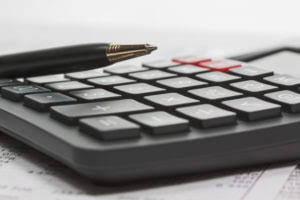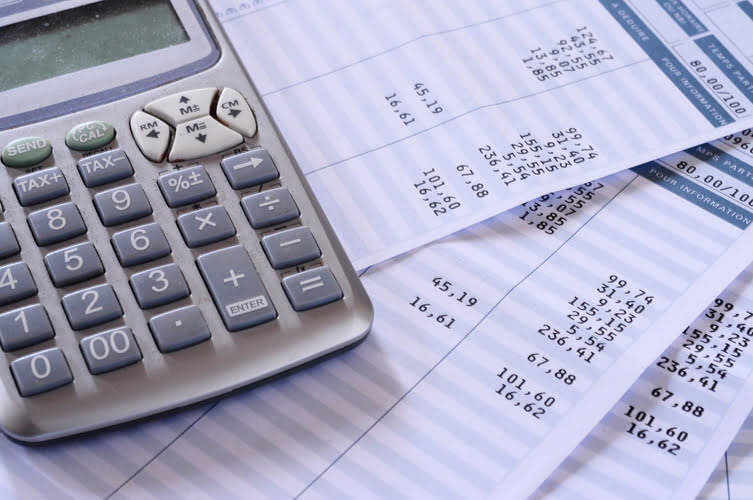
You should regularly review your financial records and consult with a tax professional to ensure that you are setting aside enough funds to cover your tax liabilities. As a sole trader, you must pay personal income tax on all business profits at the applicable individual rates. When filing individual tax returns, your taxable business income gets lumped with other personal income.
- By analysing these ratios regularly, you can identify areas where your business is performing well or areas that require improvement.
- To calculate your Class 2 NICs, you can use the HMRC’s online calculator.
- They make a more comprehensive assessment of all your business finances and suggest strategies for optimisation and business development.
- Another way to keep on top of tax obligations is by regularly reviewing profit and loss statements.
- It’s essential that you understand the tax rates and information for the self-employed.
Do sole traders need bookkeeping software?

A debit entry increases assets and expenses while reducing liabilities and income, whereas a credit entry increases liabilities and income while reducing expenses and assets. For instance, if you’re struggling with complex tax regulations or need advice on how to write off bad debt; seeking help from an accountant or bookkeeper can save you a lot of time and headaches. They can also help you develop a long-term financial plan that aligns with your business goals. Moreover, regular reviews help ensure that all transactions have been accurately recorded in your books. If there are discrepancies between your bank statements and accounting records, addressing them immediately can prevent bigger problems down the road. In this way, when it’s time to pay the tax bill at year-end or quarterly if required by ATO (Australian Taxation Office), there won’t be an unexpected hit that damages your finances.
- FreshBooks stays in sync from your desktop to the app, so you can use any device you like and always have access to the latest data about your sole trader business.
- In this section, we will define what it means to be a sole trader and discuss the role of bookkeeping in business.
- However, you need to track all sales, invoices, and payment inflows to generate crucial financial statements.
- So, the HMRC would like business owners to start submitting tax records digitally.
- Sole traders rely on timely payment from their clients to pay the bills and keep the lights on.
Bookkeeping for a Better Business
Using accounting software – including free cloud accounting options – can save you lots of time compared to manually keeping and updating a spreadsheet. Popular accounting software is available from many different providers including Xero, QuickBooks and FreeAgent. In order to measure the financial health of your business – and pay your taxes correctly – it’s vital to record all sources of income, including sales, invoices and payments received. Bear in mind that there’s lots of help out there if you’re unsure about how to manage your business finances as a sole trader. You may need to pay for the support of some accounting services, but it can help you avoid stress, hassle and unnecessary costs if you’re not familiar with managing your own books. As a sole trader, it’s important to be diligent with your bookkeeping to accurately track business performance, make informed decisions, manage taxes and plan strategically.
Limited Company Accounting

Of course, choosing the right method will depend on your business needs and personal preferences. Same with buying a cup of coffee while working by yourself from a coffee shop. No, you can’t try to recategorize the expense as “Internet” since you’re using sole trader bookkeeping the free WiFi. When it comes to deducting meals and entertainment, the IRS guidance is a bit more nuanced. But depending on the purpose of your cup of coffee or trip to the coffee shop, you might be able to deduct 100% or a whole lotta nothing.
Creating financial statements is a crucial aspect of bookkeeping for sole traders. These statements provide an overview of the financial status of your business, making them valuable tools for https://www.bookstime.com/ decision-making, financial analysis, and planning. The three main types of financial statements are the income statement (or profit and loss statement), balance sheet, and cash flow statement.
With Making Tax Digital (MTD) rolling out, it’s advisable to get used to a digital system. It’s also much easier to keep all of your records organised when they’re on an accounting software. Hiring the right accountant for your sole trader business will help free up your time to concentrate on other essential areas, like sales and marketing, or strategy planning. This will make it easier for you to manage your accounts and bookkeeping as a sole trader. When you start out, it’s a good idea to set up a separate business bank account so your personal and company finances are kept apart. Your accountant (if you have one) will need a full set of your accounts showing your sole trader income and expenditure, from which they can work out your tax liability.
Business account
It allows owners to manage cash flow effectively, make informed decisions about future investments or expenditures and ensure compliance with taxation laws. Proper bookkeeping is not an optional task for sole traders, but rather a vital one. Without accurate financial records, it can be difficult to make informed decisions about the future of the business. Effective sole trader bookkeeping requires careful organisation, regular review of financial statements, and the willingness to seek help when needed. With these tips in mind, you’ll be better equipped to keep accurate records and make informed decisions that drive the growth of your business. Don’t forget to reconcile bank accounts at the end of each month or quarter this can help pick up any unexpected discrepancies which in turn helps with cash flow planning.
Choose the right accounting firm for you
Maintaining good records also facilitates filing tax returns accurately and promptly without being subjected to penalties or interest payments due to incorrect filing. It also aids in identifying trends that influence long-term profitability by recognizing where potential losses occur so you can take necessary corrective actions like write off bad debt. As a sole trader, it’s important to understand your tax obligations and ensure you comply with relevant tax laws. In Australia, sole traders are required to pay income tax on their business profits, which is calculated based on their taxable income.
